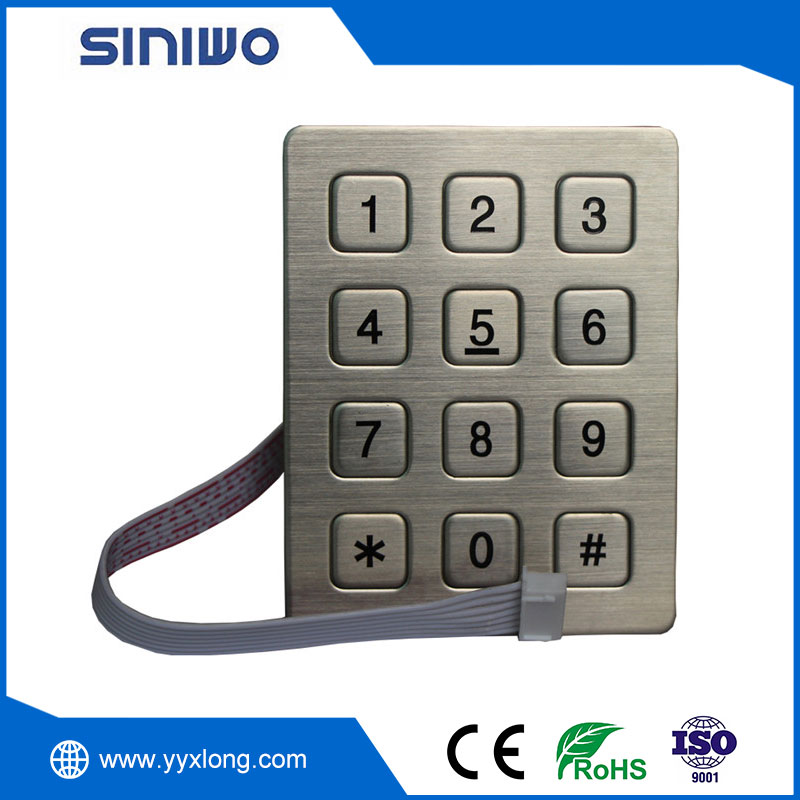Features of Stainless Steel Keypad
2024-07-18
A stainless steel keypad is a type of keypad or keyboard constructed primarily from stainless steel materials. It is designed to offer durability, resistance to corrosion, and enhanced protection against environmental factors. Here’s an overview of its features, applications, benefits, and considerations:
Features of Stainless Steel Keypad:
1. Material:
- Stainless Steel: Made from high-quality stainless steel alloys (e.g., 304 or 316 grade) known for their strength, corrosion resistance, and durability.
- Surface Finish: Often comes with a brushed or polished finish, providing a sleek and professional appearance.
2. Design:
- Keypad Layout: Standard layouts include numeric keypads, alphanumeric keypads, or customized configurations based on specific applications.
- Sealing: Some models feature IP-rated sealing (e.g., IP65, IP67) against dust, water, and other contaminants, suitable for outdoor or harsh environments.
- Backlighting: Optional backlighting for visibility in low-light conditions, enhancing usability in various settings.
3. Functionality:
- Mechanical and Electrical: Combines mechanical key switches with electronic components for reliable tactile feedback and electrical signal transmission.
- Durability: Designed to withstand frequent use and harsh conditions without degradation or malfunction.
4. Applications:
- Industrial Control Panels: Used in industrial machinery, equipment control panels, and process automation where durability and reliability are crucial.
- Outdoor Applications: Suitable for outdoor kiosks, access control systems, and public terminals due to their weather-resistant properties.
- Medical and Food Industry: Applied in medical devices, cleanroom environments, and food processing equipment where hygiene and corrosion resistance are essential.
- Security Systems: Integrated into security access control systems, keypads for gates, and electronic locks requiring robust and tamper-resistant input devices.
5. Benefits:
- Durability: Resistant to wear, corrosion, and impact, ensuring long-term reliability in demanding environments.
- Hygiene: Easy to clean and maintain, making them suitable for applications with stringent hygiene requirements.
- Security: Provides a secure interface for accessing sensitive systems and facilities, often with options for PIN code entry and authentication.
Considerations:
- Cost: Generally higher initial cost compared to plastic keypads due to the premium materials and manufacturing processes involved.
- Installation: Ensure compatibility with mounting options and integration requirements of the application.
- Customization: Consider options for custom labeling, backlight colors, and layout adjustments to meet specific user needs.
Usage Tips:
- Regular Maintenance: Clean the keypad regularly with non-abrasive cleaners to maintain its appearance and functionality.
- Environment: Select an appropriate IP rating based on the environmental conditions (e.g., indoor vs. outdoor, wet vs. dry) to ensure optimal performance and longevity.
- Testing: Perform periodic testing and inspection to verify keypad functionality, especially in critical applications such as security systems and industrial control panels.
Stainless steel keypads offer robust performance and reliability in a wide range of applications where durability, security, and resistance to environmental factors are essential requirements. Their combination of strength, corrosion resistance, and aesthetic appeal makes them a preferred choice in industrial, commercial, and specialized applications worldwide.



